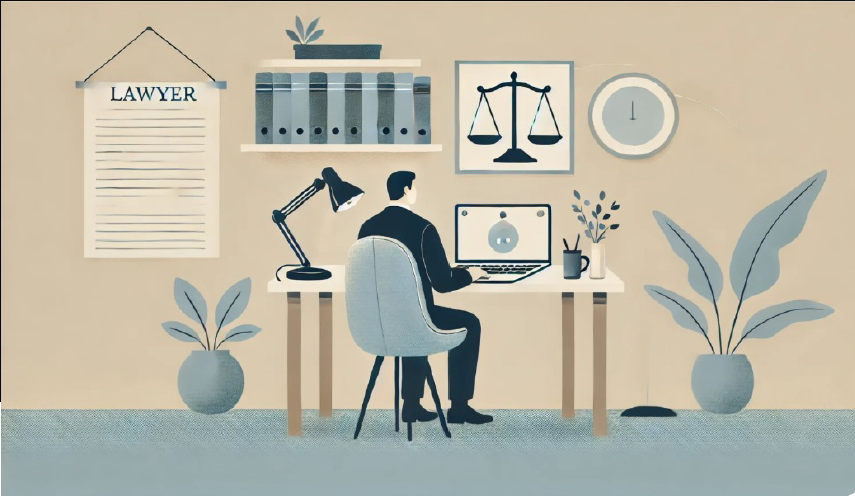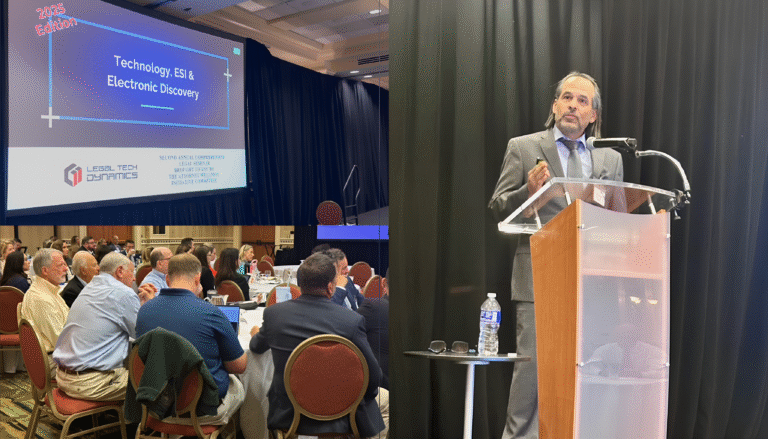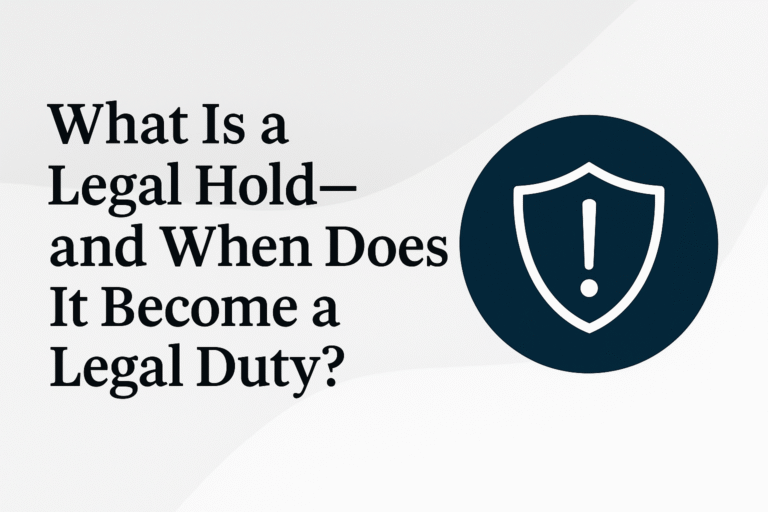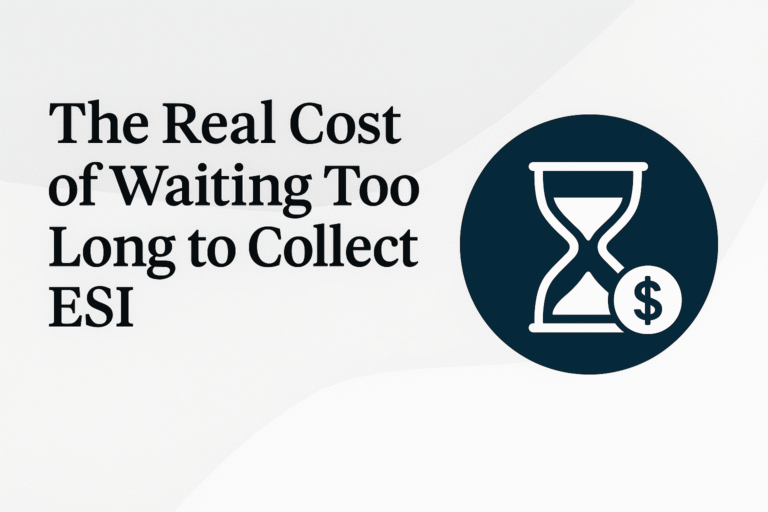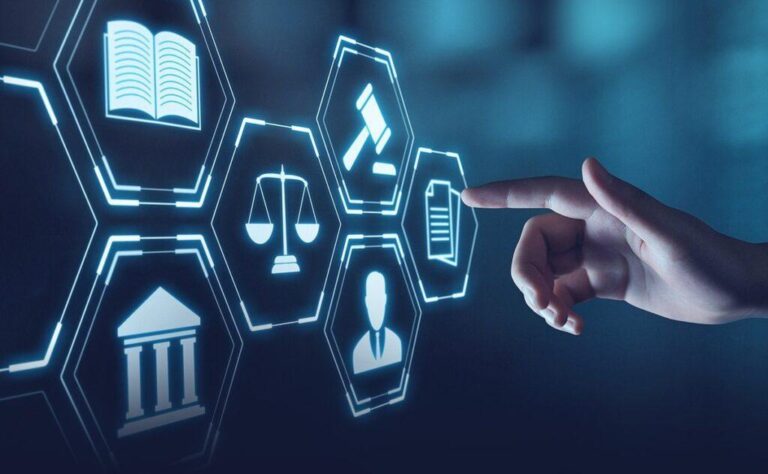An Ethical Guide to Safeguarding Your Client’s Confidential Data in a Virtual World
By Carlos A. Baradat, Esq. | Legal Tech Dynamics
The past few years have compelled legal professionals to adopt technology like never before. For many lawyers, this rapid shift meant facing a longstanding challenge—embracing change. The legal industry, historically slow to adopt new technologies, has been forced to make significant adaptations. It took nearly 20 years for civil procedure rules to address electronic discovery directly, and another decade for the first amendments to these rules to emerge.
Whatever the reasons for this cautious pace, the past two years have brought a positive, albeit unexpected, leap forward in legal practice. Today, staying updated on technology isn’t just an advantage; it’s an ethical duty. One of the most prominent areas affected by this shift is remote work. As more law firms embrace remote environments, it becomes critical to understand and implement ethical practices to protect client data.
Why Law Firms Need Mobile-Ready Offices
A virtual or mobile-ready office offers flexibility, lowers costs, supports continuity planning, and enhances staff safety. However, the convenience of working remotely brings ethical responsibilities. As legal professionals move into virtual environments, they must proactively ensure the security of client data. Ethical remote work requires thoughtful policies, staff training, and reliable technology to safeguard what is arguably a law firm’s most valuable asset: its clients’ information.
The Importance of Client Confidentiality (Rule 1.6)
According to Rule 1.6, lawyers must take reasonable precautions to prevent client information from being disclosed to unintended recipients. While these standards exist, they often leave lawyers with unanswered questions, particularly regarding data protection and handling. This ambiguity makes it crucial for attorneys to be proactive about data security by building a foundational understanding of privacy policies and best practices in data protection.
Establishing Secure Connections: Avoiding Public Wi-Fi Risks
Working remotely frequently means connecting through personal or public networks, which are often not secure. Public Wi-Fi at coffee shops, hotels, or libraries can expose users to potential security breaches. Many individuals are unaware of the security requirements necessary to protect their data, such as firewalls, VPNs, and antivirus software.
Public Wi-Fi networks also carry added risk because they often lack even basic security standards. For instance, when everyone at a coffee shop uses the same password to connect, hackers have an easy path to access all connected devices. Hackers also use techniques like spoofing, where they set up a fake hotspot with a name that sounds legitimate, such as “Hotel Guest Wi-Fi.” Connecting to one of these networks can expose client data without the user’s knowledge.
Protecting Your Data: VPNs and Securing Home Wi-Fi
One effective way to protect client data when working remotely is to use a Virtual Private Network (VPN), which encrypts your data and masks your IP address, creating a safer connection. While a VPN isn’t foolproof, it can provide an additional layer of security and demonstrate that you took reasonable steps to protect client data if a breach ever occurs.
Securing your home Wi-Fi connection is another essential step. Many routers come with default settings, often easily found online. Hackers can look up these defaults and gain access to your network. Change both your Wi-Fi and router passwords to ensure added protection.
Additionally, consider setting up a separate Wi-Fi network solely for law office activities, distinct from the household’s personal use. This separation adds another layer of security, aligning with Rule 1.6 Confidentiality of Information and Rule 1.1 Competence.
Competence and Supervision: Training and Monitoring Staff (Rules 1.1 and 5.3)
The duty of competence requires lawyers to provide representation with the necessary skill, knowledge, and preparation. As part of remote work ethics, this also means ensuring that non-lawyer staff members have adequate tools and training to secure client data. ABA Rule 5.3 emphasizes the duty of supervising non-lawyers, meaning attorneys must guide and equip their staff with tools that comply with data protection standards.
Implementing Data Protection Policies
A law firm’s remote work policies should cover essential data protection elements, including:
- Data Storage: Specify where client data should be stored, whether on secure office servers or approved cloud services.
- Secure Connections: Outline secure connection practices for remote workers, including the use of VPNs and encryption.
- Device and Virus Protection: Ensure all devices used for work have updated antivirus software and proper configuration.
- Remote Desktop Software and Data Handling: Establish procedures for accessing client data remotely and downloading it securely, particularly on non-law firm-owned equipment.
It is crucial to avoid saving sensitive files like depositions or case notes on shared family devices used for unrelated activities.
Finding the Ethical Balance in a Post-Pandemic Legal Landscape
The rapid shift to remote work has forever changed the legal profession. For years, some law firms have had remote capabilities, but recent events have made this adaptation essential. Remote work can allow law offices to operate at an advanced level, offering benefits like access to client files from any location and flexibility in office operations. However, these advantages come with ethical responsibilities.
As law firms explore new business models in response to these changes, creating a “virtual office” might be an appealing option. Nevertheless, the advantages of working remotely come with risks that require careful planning. To meet ethical standards, law firms must develop robust remote work policies, ensuring compliance with confidentiality, competence, and supervision rules. Thoughtful planning and decisive action will help legal professionals maintain high ethical standards while adapting to the new age of practicing law.
By embracing these measures, law firms can reach the “reasonable standard” necessary to protect client data in today’s virtual landscape.
Carlos A. Baradat, JD
Law Professor, Digital Forensics, and eDiscovery Specialist
www.ltdynamics.com
—–
Legal Tech Dynamics: Digital Forensics, Legal Tech Consulting, and eDiscovery Services in Central Florida, South Florida, and Nationwide
At Legal Tech Dynamics, we specialize in digital forensics, eDiscovery, legal tech consulting, law firm technology training, attorney ESI consulting, and litigation consulting. With offices in Naples, FL, and Boca Raton, FL, we proudly serve clients throughout Central and South Florida, as well as nationwide, including major cities such as Fort Lauderdale, Miami, Tampa, Fort Myers, Marco Island, West Palm Beach, and Orlando.
Whether you’re navigating digital evidence analysis, managing litigation holds, responding to requests for production, or seeking guidance on ethical and privacy considerations in eDiscovery, our experienced team is here to help. We deliver tailored solutions to attorneys, law firms, corporate clients, and individuals, ensuring secure digital data, improved legal case management, and successful eDiscovery outcomes.
Call us today at 239-221-6359 to learn how we can support your legal and technical challenges and help you achieve your goals with confidence.

